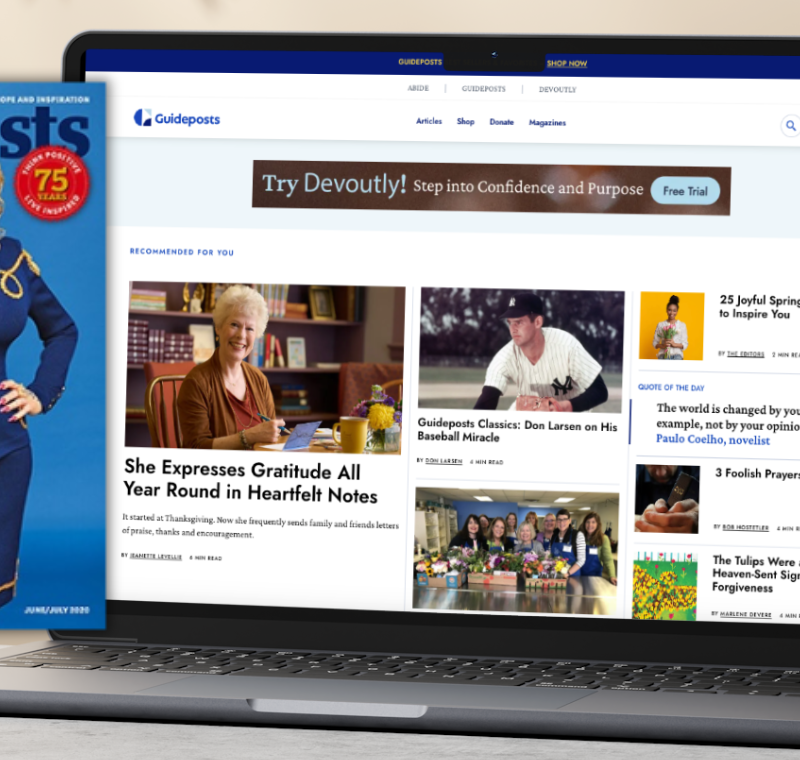Annoying, disruptive ads main reason for adblockers, concludes HubSpot study
The HubSpot Adblock Plus research study, “Why People Block Ads (And what it means for marketers and advertisers),” delved into opinions and attitudes around ad blocking, why people install ad blockers, age and geographic differences and whether people would turn them off.
The top reason for installing ad blockers, the study discovered, was that ads were annoying and disruptive to users’ experiences, but respondents also cited security, privacy concerns and offensive content. Eighty-five per cent of respondents who used ad blockers and 63 per cent of non-ad blockers agreed that ad blocking was a good thing, and benefitted a user’s Internet experiences.
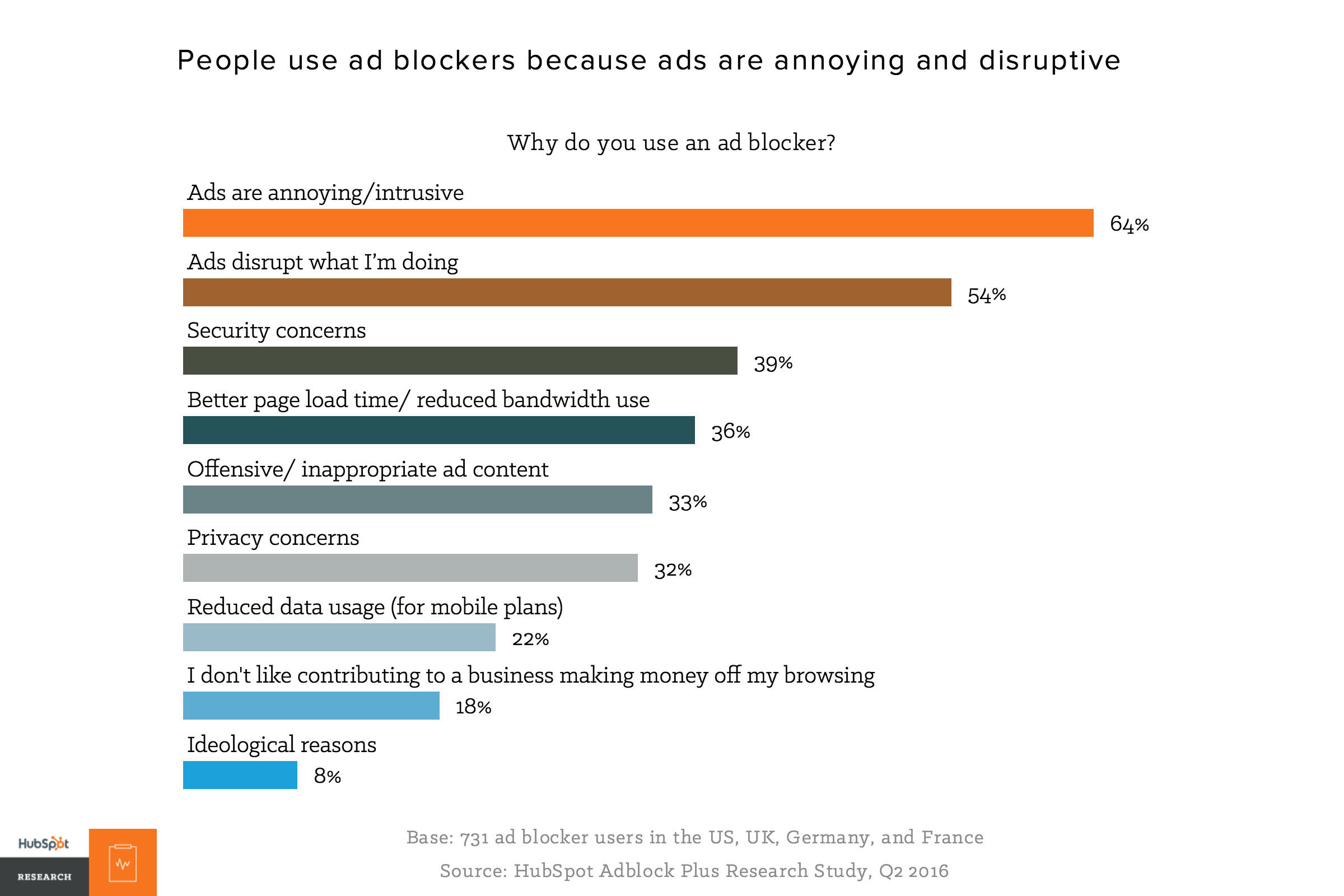
Seventy-six per cent of ad blocker users aged 55+ felt ads were annoying and intrusive, though over 50 per cent of all age categories felt ads were annoying and disruptive. This perspective didn’t change over geography, either. From the US to the UK, to France and Germany, over half of all respondents agreed that ads were annoying and disruptive; 70 per cent in France, 65 per cent of respondents in both Germany and the UK, and 57 per cent in the US. Over half of all respondents also agreed that ads disrupt their activities: 61 per cent in the UK, 55 per cent in Germany, 51 per cent of those in France, and 47 per cent in the US.
The study identified the most annoying ads as pop-ups, mobile ads that take over an entire screen and video ads, ads that “follow” from desktop to mobile, and text-based ads.
Annoying, disruptive ads damaging to brands
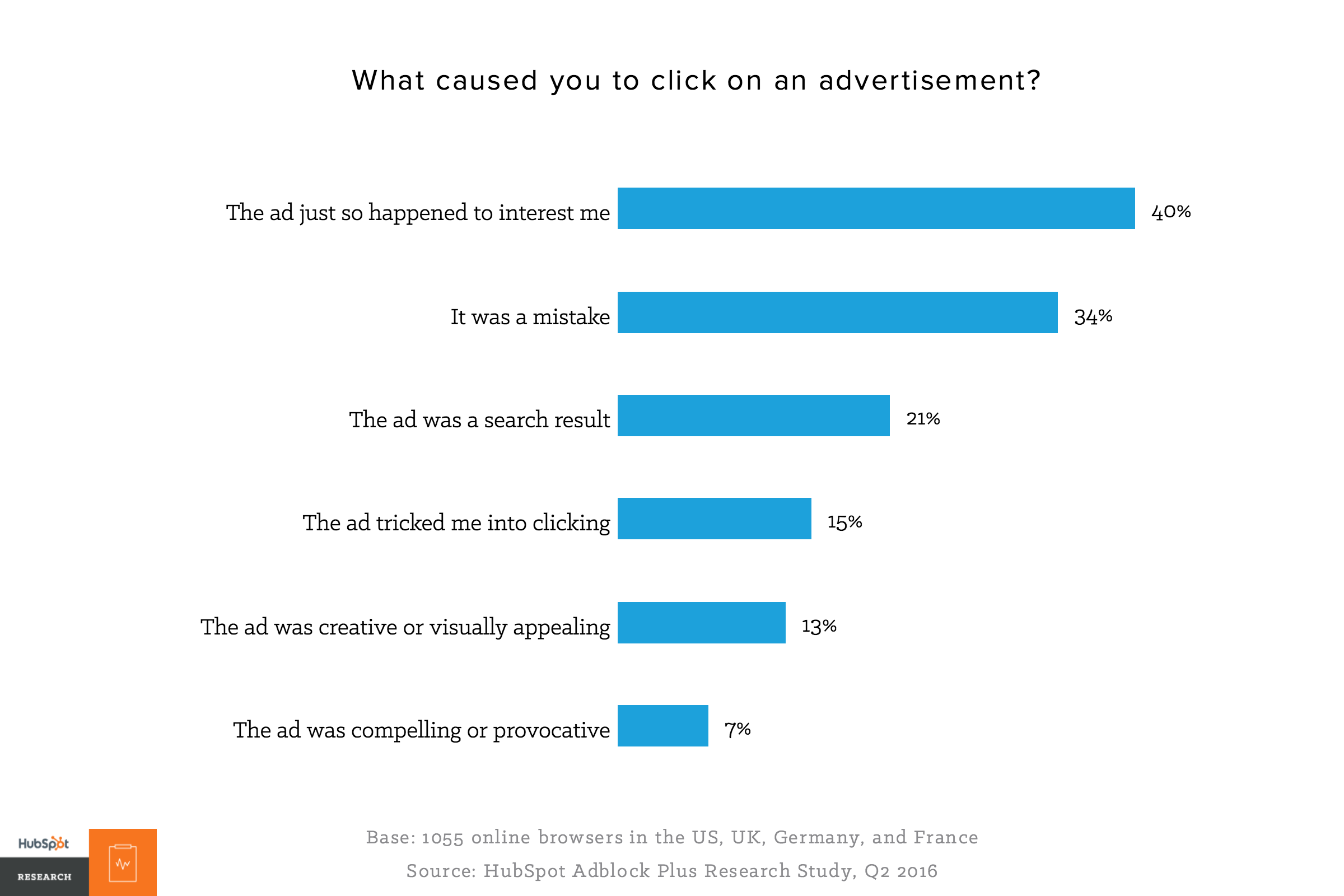
The most annoying of all: ads that take over an entire screen.
Seventy-three per cent of respondents disliked online pop-ups, and 70 per cent disliked ads on their mobile devices.
This sentiment extended to advertisers themselves and the websites that hosted the ads. This insight may have repercussions for magazine brands in the future. Eighty-five per cent of respondents said “obnoxious or intrusive” ads gave them a poor opinion of the brands advertised and the websites that allowed them.
One of the recent developments in response to audience use of ad blockers is a trend to ask individuals to turn off their ad blockers. In March 2016, the Internet Advertising Bureau (IAB) offered publishers advice on how to ask users to turn off their ad blockers. Forbes, The Atlantic, Wired, & Conde Nast’s GQ are among some of the publishers who serve up messages asking ad block users to turn off their adblockers, whitelist their site, make a donation or pay a small fee.
In December 2015, Forbes began asking digital visitors to turn off their ad blockers in exchange for an “ad-light” experience, according to Chief Product Officer Lewis DVorkin. “Since Dec. 17, 4 million desktop visitors or 42.3 per cent of those asked, have either disabled their blockers or whitelisted Forbes.com gaining access to content and the ad-light experience” he wrote in a blog post. A couple of months later, DVorkin verbally battled on stage with AdBlock Plus’s Ben Williams, head of operations, at South by Southwest conference in Austin. “We’re trying not to go to war here,” DVorkin was quoted in Digiday.
Ad blockers blocked from content
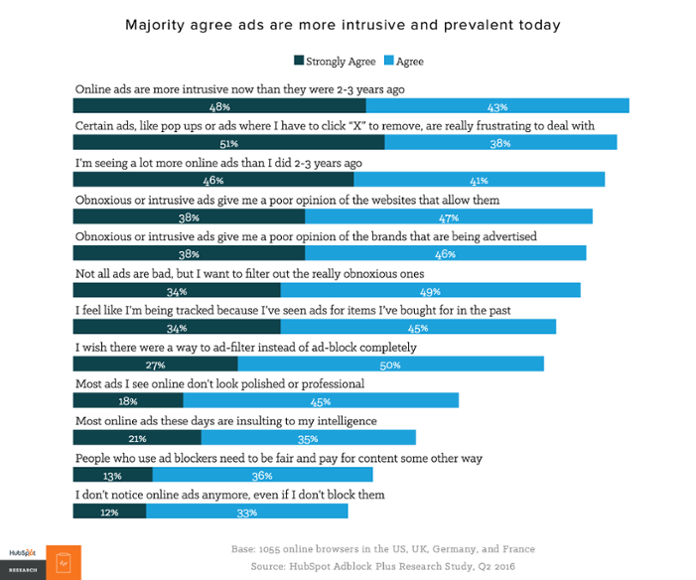
The HubSpot/Adblock Plus study revealed interesting insights into ad blocker users’ attitudes when blocked from website content because they used ad blockers: a large percentage would stop visiting. Only 16 per cent would disable their ad blocker to be able to view content, but more would simply stop visiting the site. Twenty-eight per cent of respondents agreed that they would avoid the website if they were blocked from accessing it because they were using an ad blocker.
In this study, those polled were split on whether they’d turn off their ad blocker completely, citing that they liked being in control of their Internet experience. Though, 28 per cent said they’d turn off their ad blocker completely if they browsed a web with non-intrusive ads, and 24 per cent would turn off their ad blocker completely if website offered fewer ads if they turned off their ad blocker.
Silver linings
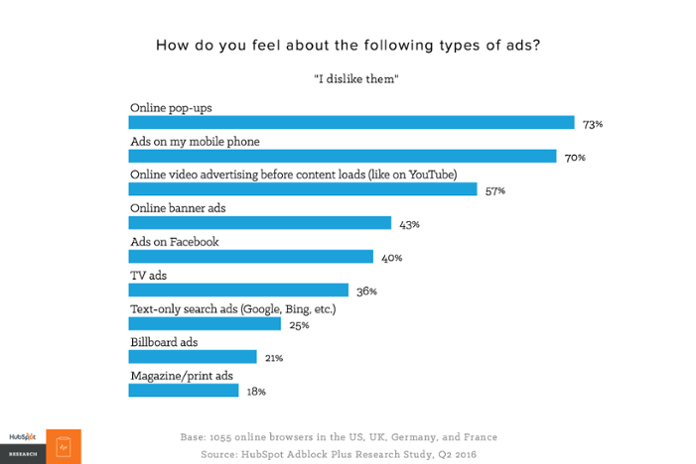
However, there was a silver lining to the HubSpot study: Not all ads were bad.
Respondents were more likely to want to filter ads than block them completely. The research suggested that the majority of the study participants would accept ads if they were not annoying, and younger respondents were open to paying for content and turning off their ad blocker. And, 57 per cent of respondents found ads useful and valuable, especially when they were search ads.
The key to delivering content and advertising in the future, is to make it not annoying. The study concluded with the observation that people would accept ads as long as they weren’t annoying, and a small percentage would even be willing to pay for the content they enjoyed or donate directly to websites. These users were more likely to be younger, demographically. More than 35 per cent of people 24 and under and 25-34 had paid for content in the past, and were more comfortable with the practice, whereas 80 per cent of those aged 45-54 and 87 per cent of those aged 55+ had never paid for content.
Younger audiences were also more likely to turn off their ad blocker, according to the study. Those aged 24 and under would be more likely to turn off their ad blocker permanently, if the website they wanted to visit had blocked their access (42 per cent), or if the website offered fewer ads in return (32 per cent).
Geographically, more French respondents were open to non-intrusive ads (78 per cent), than Americans (61 per cent), though 68 per cent of respondents in the UK and 66 per cent in Germany were open to seeing ads, as long as they weren’t annoying.
More like this
Ad block innovation – now it is baked into a browser and targets native advertising too



